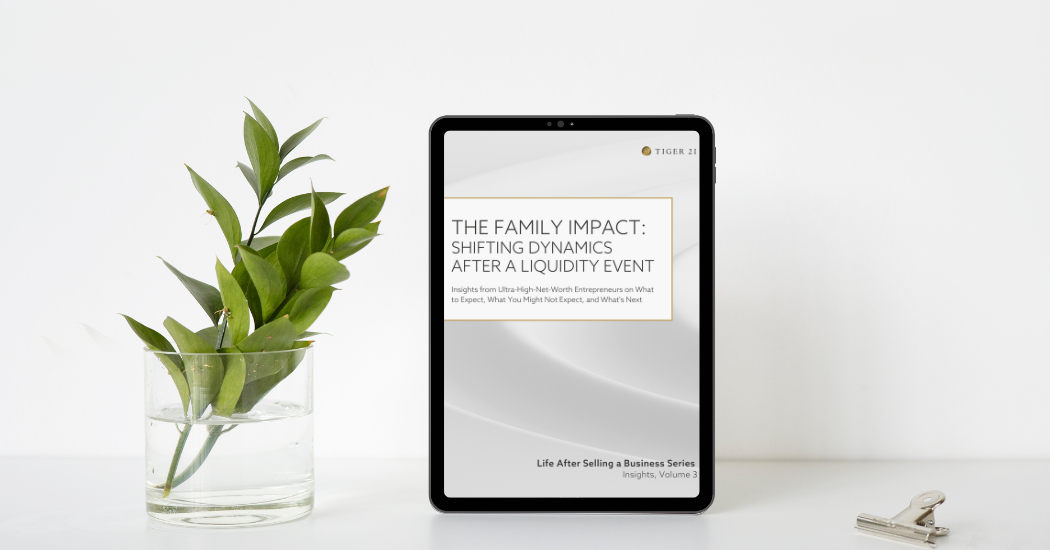HOW TO RAISE FINANCIALLY RESPONSIBLE CHILDREN

One of the rewards of being successful is that it allows you to give your children things you may never have dreamed of having when you were growing up. But just how much should you give them and still expect them to develop into financially responsible, well-grounded adults? That’s the tricky part, and parents often wonder if wealth runs counter to teaching children about the value of hard work.
An Inventory of Ideas
Looking over advice from a variety of different sources yields plenty of good tips on how to raise financially responsible children when you have considerable wealth. Here are some highlights:
- As a father raising children, Warren Buffett seemed focused on making sure he didn’t raise them with a sense ofentitlement. He reportedly gave them 75 cents a week as allowance when they were kids, and later told his daughter to “go to the bank like everyone else” when she needed a $41,000 home improvement loan.
- While parents like Buffett clearly want their children to choose their own paths, others are intent on preparing their heirs to take over the family business. In such cases, it is better to bring adult children into the business over a long period of time than have them begin a crash course when they are handed the keys to the kingdom.
- Chuck Feeney, a man who gave away over $5 billion in personal wealth to charities, did not write his children any blank checks. He insisted they live within budgets, which can be an empowering way for someone to learn to manage their finances, and underscores the fact that wealth is not an unlimited resource.
- Suniya Luthar, a professor of psychology at Arizona State University who studies the effect of affluence on children, noted in an interview withForbes that busy parents often make the mistake of using lavish gifts to substitute for a lack of personal attention. Not being involved deprives you of the opportunity to share the values that made you successful, and gives the impression that money is a substitute for love.
- Luthar also stressed the importance of not bailing your kids out when they run into difficulties. Make them own their mistakes, rather than learning to expect you will always buy them out of trouble.
- Notably, an influential 40-year project known as theHarvard Study of Adult Development that looked at the progression from upbringing to adulthood of both privileged and underprivileged children found that the greatest predictor of mental health as an adult was “the capacity to work learned in childhood.”
One difficult subject, experts agree, that wealthy parents need to broach is the understanding that their level of wealth is far from ordinary. This understanding is necessary in order to instill a sense ofappreciation for the advantages wealthy kids have, and empathy for those who don’t have those advantages.
More than Money
Whether your idea of how much financial support to give to your kids falls on the frugal or the lavish end of the scale, it is important to remember that successful parents can give their kids advantages beyond money.
For all his celebrated frugality, Warren Buffett gave each of his three children a billion dollars to put towards philanthropic pursuits. This gives kids management responsibility and a reminder that money can be used for more than just personal consumption.
Education is another long-term advantage parents can give their kids. Providing your child with access to a good education is a huge leg up in life. Further, your day-to-day example will show not just the importance of a strongwork ethic, but also the great things that are possible if you strive for achievements beyond the ordinary. In short, investing in your children’s future involves much more than simply giving them money.
Ultimately, perhaps the best gift you can give is to help your children find is their sense of purpose in life.
A Sense of Purpose
As a successful entrepreneur, you are now in a position to do for your children, but there is one experience that you can never fully give them, which is the experience of rising from modest means to comfortable wealth. Successful people often say that the initial climb to success is one of the most rewarding parts of their life’s journey, yet the irony of having made that climb is that you can never give your kids quite the same experience.
While it’s good that your kids might not have to fight to make it, that struggle gives a clear sense of purpose. For children who are born into advantage, perhaps the crucial mission for parents is to make sure that those kids find their own sense of purpose.
That purpose may be to follow in your footsteps in the business world, or it may be to pursue a different career. Their purpose might be to use their advantages to help others, or it may be to work in the creative arts. The point is that beyond any specific piece of advice helping your kids find something they are passionate about and dedicated to pursuing is critical.
After all, parents often wonder how hard to push their kids. Once those children find their own sense of purpose though, they won’t need to be pushed because they will be driving themselves-just perhaps in a different direction than you once chose.
About TIGER 21
TIGER 21 is an exclusive global community of ultra-high-net-worth entrepreneurs, investors, and executives.
Explore the TIGER 21 Member ExperienceMember Insight Reports










